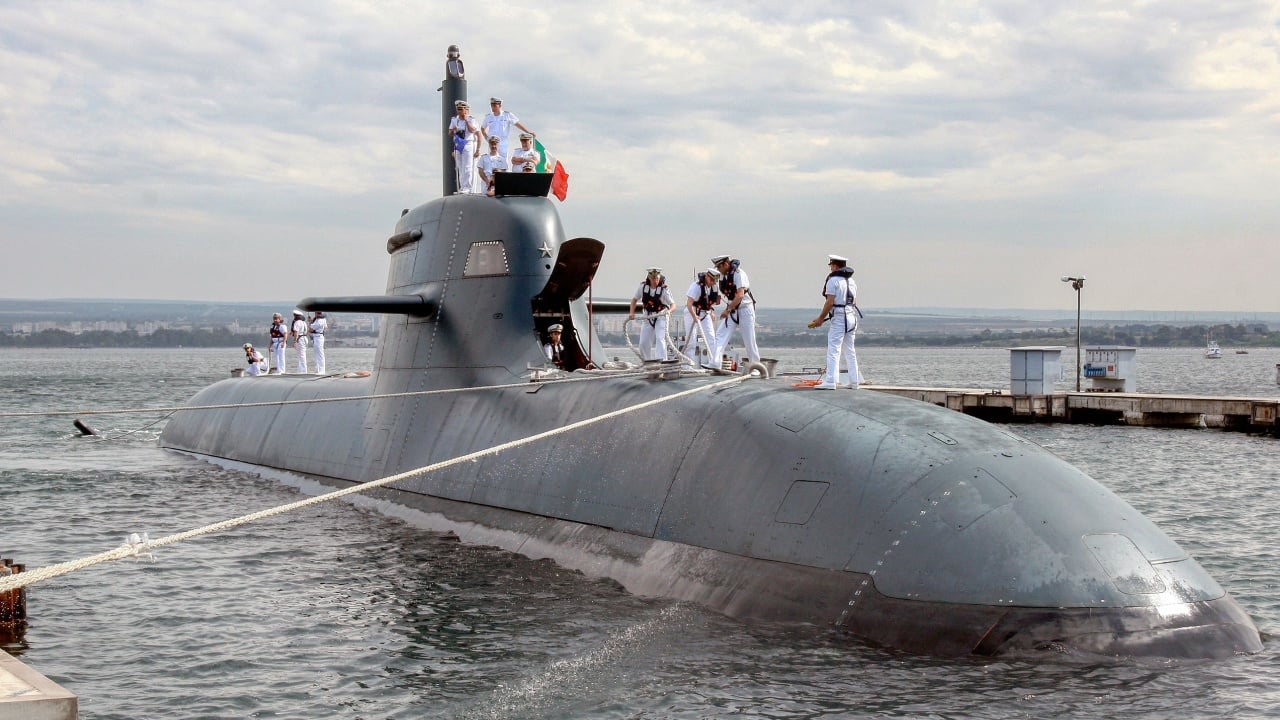Recently, the Italian aircraft carrier ITS Cavour participated in the Pitch Black 24 exercise in Australia, along with France, Germany, Spain and the United Kingdom. This high-intensity training is designed to improve interoperability with international allies. After the exercise, the Italian carrier battle group will depart for Guam (Japan) and then cross the South China Sea for the first time towards the Philippines.
This comes as the Italian Parliament gives the green light to over forty military operations for 2024, including new missions in Italy’s “extended Mediterranean”, an EU-led naval mission in the Red Sea (Aspides) and a humanitarian mission in Palestine (LevantIn terms of personnel, Italy is the largest contributor to UN military operations and the second largest to NATO and EU missions.
These moves reflect a two-pronged foreign policy expansion initiated under the Draghi government (2021-22) and accelerated by the Meloni government. Italian foreign policy has expanded beyond its traditional Atlantic, European and Mediterranean borders.
First, Italy is expanding the concept of the “Greater Mediterranean,” extending it from the Sahel region of Africa to the Black Sea, including the Horn of Africa and the Arabian Sea. It is targeting and aiming to strengthen fragile states vulnerable not only to crime and terrorism but also to the influence of China and Russia. These powers have used economic aid and military support not only to extract raw materials but also to exercise control over Europe through strategic points, resources and migration routes. To counter this and pursue other goals, Italy launched the Mattei Plan. It received the approval of several African states at the Italy-Africa Summit (28-29 January) and the blessing of the G7 at the Borgo Egnazia Summit (13-15 June). The plan targets nine critical countries with pilot projects – Algeria, the Democratic Republic of Congo, Ivory Coast, Egypt, Ethiopia, Kenya, Morocco, Mozambique and Tunisia.
Second, Italy’s participation in Pitch Black 24 underscores its growing commitment in the Indo-Pacific following other European middle powers. Italy has joined the Global Combat Air Program (GCAP) with Japan and the UK. Yet it has not renewed its Memorandum of Understanding (MOU) with China, signed a strategic partnership with Japan, and strengthened its relations with India. Italy is also increasing its military presence in the Indo-Pacific and underscores its commitment to Freedom of Navigation Operations (FONOPs), although it does not participate in US-led initiatives of this kind.
The six-month deployment of the Italian Navy Thaon of Revel-Class ship Francesco Morosini in 2023, followed by a five-month deployment of the Cavour Carrier Group and a similar voyage by the offshore patrol vessel Montecuccoli demonstrate this change. These missions are about naval diplomacy, promoting Italian industry and working with NATO allies and local forces to promote interoperability – especially with Japan. Italy also participated for the first time with a ship in the Rim of the Pacific (RIMPAC) exercise, the world’s largest naval warfare exercise.
Despite these growing efforts, Italy has not yet developed a national security strategy defining its interests, objectives, resources, threats and defence capabilities. As the only G7 country without such a document, Italy may soon come under pressure to develop one, if recent signals from high-level institutions are to be believed.
Adopting a national security strategy would require Rome to clearly define its actions and manage constraints. This is crucial because Italy’s status as a middle power has two important implications.
From a positional perspective, a middle power is defined by its capabilities. In this context, Italy should focus its foreign policy primarily on the “greater Mediterranean”. This approach avoids both the risk of over-extending itself with limited resources and the challenge of justifying increased engagement in a region such as the Indo-Pacific to a domestic public that is often hostile to increased defense spending.
Since the Central Powers can defend their interests mainly in their regions, Italy is under pressure to focus on the “wider Mediterranean” and avoid overstretching its commitments. This is also crucial because the Italian public is extremely skeptical about foreign military operations.
However, middle powers are dangerously exposed to the externalities of great power competition. As confrontation between the most powerful players escalates, middle powers are pushed to side with their stronger ally as their room for maneuver shrinks. As a result, Rome is now paying more attention to Washington’s calls for greater European engagement in the Indo-Pacific. This move is expected to benefit relations with Washington, as Rome can use the growing engagement in Asia to at least reasonably bind the Americans to Euro-Mediterranean security.
Italy faces this middle power dilemma. On the one hand, the Mediterranean is a powder keg that is pushing Rome to focus its resources on stabilizing it. On the other hand, the US will increasingly turn to the Indo-Pacific, dragging some allies with it. Against this backdrop, formalizing a national security strategy could strengthen Italy’s position, especially if it includes a global perspective, and also promote greater executive coordination.
However, this could also limit foreign policy flexibility, as the document puts commitments on paper. Alternatively, not adopting such a document could be a strategic decision to preserve more room for maneuver and adaptability. Unfortunately, this could also limit Italy’s future role on the world stage for two reasons. First, Washington and some allies could feel that Rome is out of step with the changing balance of power. Second, national executive coordination could be lacking, especially in the face of growing competition among the great powers.
Gabriele Natalizia is a visiting professor at the Atlantic Council’s European Center. He is also an associate professor at the Department of Political Science at Sapienza University of Rome, where he teaches security and international politics and political science.
Lorenzo Dates is a visiting professor at the Atlantic Council’s European Center. He is also a postdoctoral fellow at Sapienza University of Rome and an associate professor at the University of International Studies of Rome and the American University of Rome.
Image: Massimo Todaro / Shutterstock.com.

